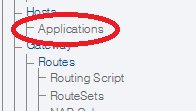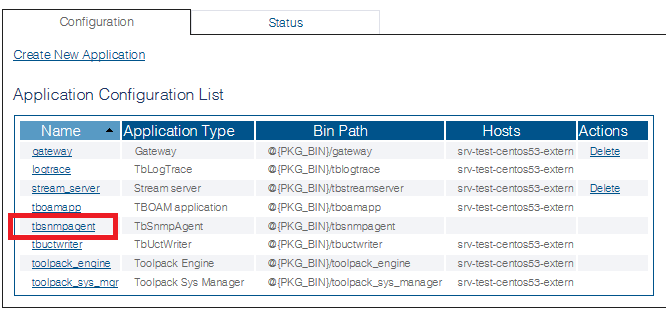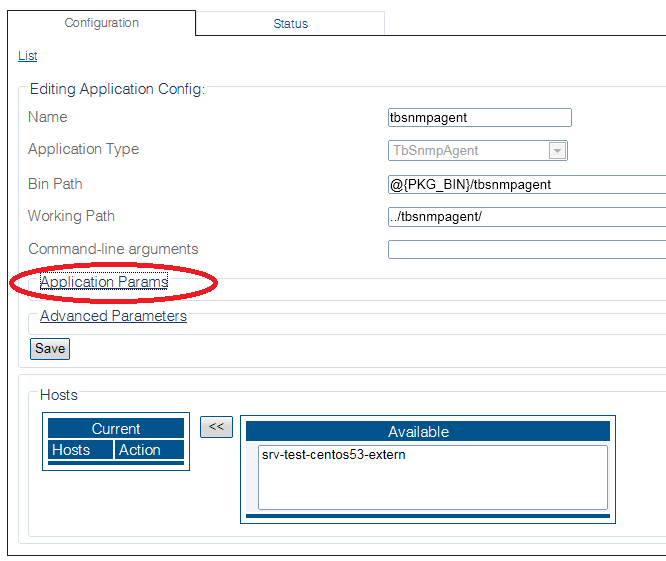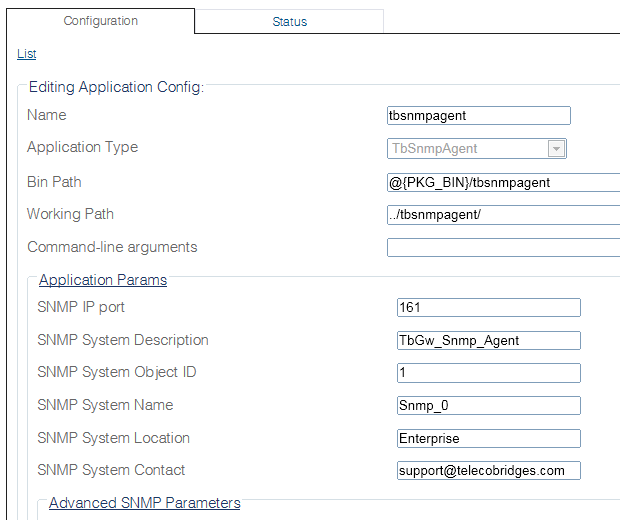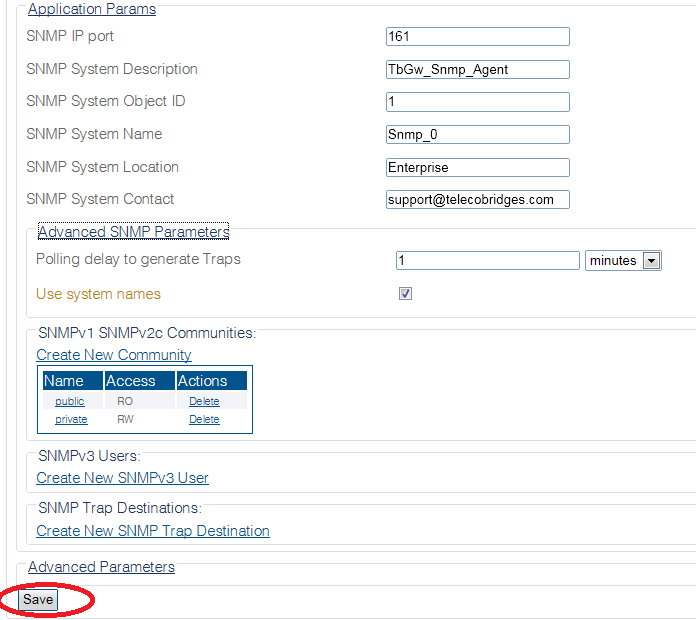Toolpack:Configuring tbSnmpAgent B
From TBwiki
(Difference between revisions)
(→Applies to version(s): v2.8.) |
(→Applies to version(s): v2.8.) |
||
| Line 30: | Line 30: | ||
[[Image:Snmp_cfg_5.png]] | [[Image:Snmp_cfg_5.png]] | ||
<br/><br/> | <br/><br/> | ||
| − | *Verify that the ''' ''' is displayed | + | *Verify that the '''ApplicationCfg was sucessfully updated''' message is displayed. |
[[Image:Snmp_cfg_6.png]] | [[Image:Snmp_cfg_6.png]] | ||
Revision as of 11:00, 12 September 2014
Applies to version(s): v2.8.
Once you have successfully activated the tbSnmpAgent application, follow these steps to configure the SNMP system parameters:
- Click Applications in the navigation panel.
- In the Application Configuration List, select tbsnmpagent.
- Click Application Params
- Enter Values for the following parameters:
- SNMP IP Port: the IP port to use for making SNMP requests (standard default value is 161)
- SNMP System Description: the textual description that will appear when polling the sysDescr variable of the SNMPv2-MIB
- SNMP System Object ID: the value appended to TelcoBridges' value (.1.3.6.1.4.1.21776.3) for the SNMPv2-MIB variable sysObjectId
- SNMP System Name: the textual description that will appear when polling the sysName variable of the SNMPv2-MIB
- SNMP System Location: the textual description that will appear when polling the sysLocation variable of the SNMPv2-MIB
- SNMP System Contact: the textual description that will appear when polling the sysContact variable of the SNMPv2-MIB
- Click Advanced Params to view or change advanced settings for the following parameter(s):
- Polling delay to generate traps: this sets the length (in seconds) for the time intervals at which the SNMP agent polls for newly generated traps.
- Click Save
- Verify that the ApplicationCfg was sucessfully updated message is displayed.
